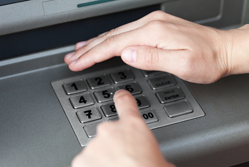You might like to think it would take a hacker or computer genius to get into your accounts, but unfortunately it doesn’t. Carelessness is the biggest cause of security breach to an online account, especially when it comes to a straightforward and common username and password login screen.It’s never a good idea to share log in details to any service, and we’d recommend not sharing details to our service either. As a best practice we recommend you set up unique usernames and passwords for each user accessing the one account.Until something goes wrong, it’s easy to see certain services as a low risk, especially web services. You may not be paying for the credits and it may be a low value purchase as it is. Yet, let me ask you this, even if you had $0 in your bank account, would you share your pin with a colleague? More than likely you wouldn’t, and that’s because it’s of high value to you as an individual. It’s yours and you don’t want others to have access to it. You’ll protect it to the point of covering your pin when drawing money from an ATM.On the other hand, pass codes and passwords that are seemingly low risk are often abused, and this is because there is no personal data linked to it. There is no emotional attachment to it unless you’re the one that gets burnt. For example, you’ll often dish out your apartment block’s pass code to friends and family. I’m guilty of this too, and it’s because I don’t see it as my pass code. It can’t be traced to me and so it can’t be that important; I’d have been given a personal one if it was that private – right?Security is a two-way street and only works when everyone works to ensure its integrity. If you have more than one user wanting to use our platform, then this is possible as Echo supports multiple users. Each user can also be set to a different level, ranging from basic user to administrator.

